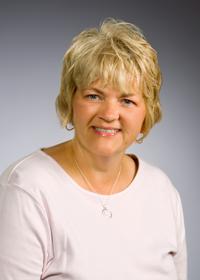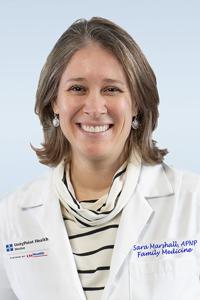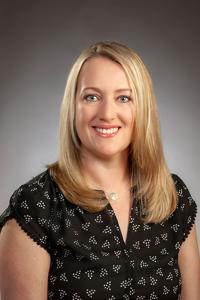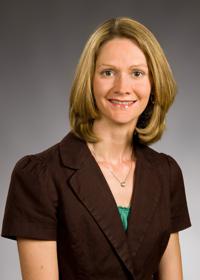UnityPoint Health - Meriter - Monona Clinic

Information
Number of patients waiting reflects the current number of patients waiting to be seen. This number changes frequently and is not exact.
Hours & Directions
Hours of Operation
- Monday: 7:00 AM - 5:30 PM
- Tuesday: 7:00 AM - 5:30 PM
- Wednesday: 7:00 AM - 5:30 PM
- Thursday: 7:00 AM - 5:30 PM
- Friday: 7:00 AM - 5:00 PM
- Saturday: Closed
- Sunday: Closed
Our UnityPoint Health - Meriter - Monona Clinic medical campus provides patient-centered, comprehensive care in one location. Meriter physicians are here to help heal those who get sick or hurt, but their primary goal is to help people stay healthy and prevent disease.
Mammography Services
Mammography saves lives, call the Monona Clinic to schedule your screening mammogram today at (608) 417-6288.
Bone density scans are also available at the Monona Clinic, so you can save time by scheduling your mammogram and bone density scan during the same visit.
Mammography is currently the most effective way to look for breast cancer. It may reveal breast problems before they can be felt by you or your doctor.
We now offer both 2D and 3D mammograms. Our new Genius™ 3D Mammography™ technology works by imaging multiple slices of the breast from several angles. Then, a computer produces 3D images of the breast tissue in one millimeter slices. The radiologist reviews the slices one at a time, much like turning the pages of a book. This enables them to see more clearly into the layers of the breast tissue. With 3D mammograms the radiologist is able to see through the layers of breast tissue which may make the evaluation more accurate.
- If possible, have a physical exam (including a breast examination) from your health care provider prior to your mammogram.
- Schedule your mammogram when your breasts are the least tender. If you are menstruating, that will be one week after your period.
- Wear a separate top and bottom so that it will be easier and more comfortable to disrobe from your waist up.
- Do not wear deodorant, talcum powder, ointment or lotion on your breasts or underarm area.
- Be able to share where and when you have had prior mammograms so we can obtain them prior to your appointment.
Radiology
The Radiology department at UnityPoint Health – Meriter provides diagnostic and therapeutic procedures to assist in patient care.We are committed to putting patient and staffs' safety first. Radiologists and x-ray technologists are trained and are dedicated to using the minimum amount of radiation necessary to obtain the needed results.
Patients requiring imaging procedures need a referral and order from their physician. Routine studies are scheduled in advance. Emergency procedures are performed as requested. Appointments for outpatient work are necessary and can be made by calling (608) 417-6288.
Our Radiology department first reached this status in 2007 and re-accredited in 2010. Computer Tomography (CT) achieved accreditation in 2010. Molecular Medicine & PET/CT were accredited in 2011.
UnityPoint Health – Meriter hospital is the first hospital in Madison to be awarded ACR accreditation.
MRIs use strong magnets, so please remove any metal jewelry, watches, coins, hairpins or piercings. Talk to your care team about any metallic devices in your body, like pacemakers or cochlear implants. No other advance preparation is typically needed, unless noted by your care team. Our thing is healthcare, but you know you best, so let us know if you have any questions or concerns. Our experienced team will help you through the process.
Please check in for your appointment in the 3 Tower registration area. Volunteers at the welcome desk can help guide you.
Additional Patient Resources
The HEALTH Program offers these services at locations throughout our community, adhering to the street medicine model that has remained the core of the program. HEALTH provides care to patients where they are, including but not limited to shelters, clinics, and in our community.
HEALTH's focus is on medical care and will work with our community's homeless services agencies to ensure patients are getting the full array of services available to them.
- The Community Resource Specialists and Social Work team works closely with the clinic providers, who send referrals based on psychosocial needs of their patients. This team provides resource linkage, complex care coordination, and connection to community supports as needed based on the patient.
- They operate out of the primary care clinics, the therapies departments, NICU-follow-up and work closely with the Behavioral Health Consultant team.
- This team also helps facilitate Advanced Care Planning and helping patients completed Health Care Power of Attorney documentation.
Our Providers

Eboselumhen Iseghohi, DO
Family Medicine

Diane Wendland, MD
Family Medicine

Derek Clevidence, PhD, MD
Family Medicine

Bridget Pribbenow, MD
Family Medicine

Sara O'Donnell, NP
Internal Medicine

Sara Marshall, APNP
Family Medicine

Sanford Carimi, MD
Internal Medicine

Naomi Wedel, MS, RD, CD, CDCES, BC-ADM
Dietetics

Kate Green, CPNP
Pediatrics

Carleen Hanson, MD
Pediatrics

Melissa Grimm, MD
Internal Medicine
Our Services
-
Bone Density Testing
Learn about bone density tests at UnityPoint Health. Discover how this quick, non-invasive imaging service can help assess your bone health and detect bone conditions, like osteoporosis. Find locations and expert care near you.Bone Density Testing
-
Mammograms
Schedule your mammogram with UnityPoint Health for expert imaging services. Early detection saves lives—trust our compassionate care and advanced technology to provide accurate breast health screenings. Find a location near you today!Mammograms
What Type of Appointment Do I Need?
Primary Care encompasses the comprehensive treatment of a number of diseases in symptoms and specialties including pediatrics, internal medicine and family medicine. Rather than specializing in one particular area of medicine, the physician is trained to meet all the needs of patients as one point of contact. Same-day appointments may be available. Call your clinic or log in to MyUnityPoint to schedule with your provider or a member of their care team.
Examples of symptoms and conditions treated by a primary care provider can include:
- Allergies
- Cancer screenings (for select cancers)
- Disease management (asthma, high blood pressure, diabetes, obesity, etc.)
- Long term care or treatment planning
- Managing existing conditions (migraines, depression, anxiety, arthritis, etc.)
- Medication refill and medicine checks
- Minor medical problems and injuries
- Ongoing symptoms (continued back pain, skin problems, etc.)
- Physicals/sports physicals
- Substance abuse
- Vaccinations
Urgent Care and Express treat minor medical problems and injuries that are not life-threatening, but need the attention of a health care provider. These are not an alternative to the emergency room, but offer the ability to get walk-in care without an appointment for all patient ages. Urgent Care is available after hours, weekends and holidays. Our Urgent Care Clinics can provide medical treatment for minor illness and injuries such as:
- Allergies
- Burns
- Colds
- Coughs
- Cuts (Stitches)
- Earaches or Ear Infections
- Fevers
- Minor Medical Problems and Injuries
- Minor Eye Care
- Flu
- Fractures (X-Ray On-Site at Most Locations)
- Infections
- Sore Throats
- Sprains, Including Sprained Ankles (X-Ray On-Site at Most Locations)
- Urinary Tract Infections (UTIs)
- Yeast Infections
- Certain Rapid Tests
Please note: Flu shots, physicals and/or sports physicals are not offered at every walk-in care location.
*If you are experiencing chest pain or shortness of breath, please go to the Emergency Department or call 911 immediately. For less serious medical issues, such as physicals, medication refills or to leave a message for your primary care doctor, you can access your My UnityPoint patient portal 24/7!
Connect with a UnityPoint Health provider online using MyUnityPoint to access virtual urgent care. Virtual care doctors can diagnose, recommend treatment and prescribe medication when necessary for commonly treated conditions. Available every day, 8 a.m. to 8 p.m. for individuals 2 years and older located in Iowa, Illinois, Nebraska and South Dakota.
Virtual care should be used for minor, common ailments and illnesses. Some examples, and the qualifying age to receive virtual urgent care for that condition, include:
| Condition | Virtual Urgent Care |
|---|---|
| Acne | 2+ |
| Burn | 2+ |
| Cold/Flu | 2+ |
| Cold Sores | 13+ |
| Constipation | 2+ |
| Cough/Upper Respiratory Infection | 2+ |
| Diarrhea | 2+ |
| Fever | 2+ |
| Head Lice | 2+ |
| Heartburn | 2+ |
| Headache/Migraine | 18+ |
| Joint Pan | 2+ |
| Rash | 2+ |
| Red Eye | 2+ |
| Sinuses | 2+ |
| Sore Throat | 2+ |
| Urinary Tract Infection | 13+ (female only) |
| Vaginal Infection (yeast/bacterial vaginosis) | 18+ |
| Vomiting | 2+ |
Emergency rooms are open 24 hours a day, seven days a week for severe or life-threatening conditions. Conditions that require emergency care include excessive bleeding, broken bones, chest pain or trouble breathing. Emergency services include diagnostic testing and access to specialists.
Examples of symptoms and conditions treated by emergency departments can include:
- Symptoms of a heart attack, including severe chest pain, sweating and shortness of breath.
- Profuse bleeding or blood loss that continues even after direct pressure has been placed on the wound.
- Severe abdominal pain.
- Sudden dizziness, weakness, loss of coordination, balance or vision problems, which are signs of stroke.
- High fever and vomiting that continues nonstop for several hours.
- Signs of meningitis for adults: severe headaches, neck/joint pain and stiffness, vomiting, high temperature, sensitivity to light or babies and small children: high-pitched whimpering/crying, lethargy, fussiness, restlessness, high fever, vomiting, cold extremities, refusing food, pale or blotchy skin.
- Seizures lasting longer than five minutes.
- Injuries occurring from an accident or fall - intense back or neck pain, obvious compound fractures and/or dislocations of bones, deep cuts and severe burns.
